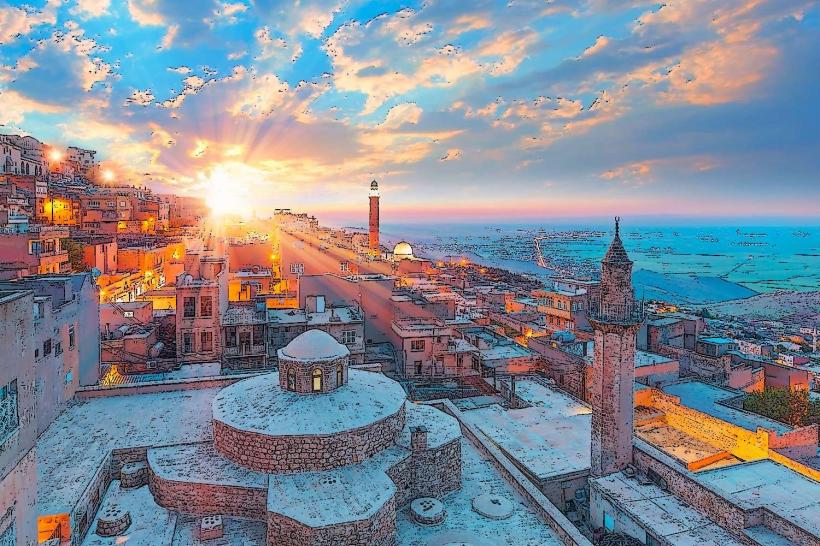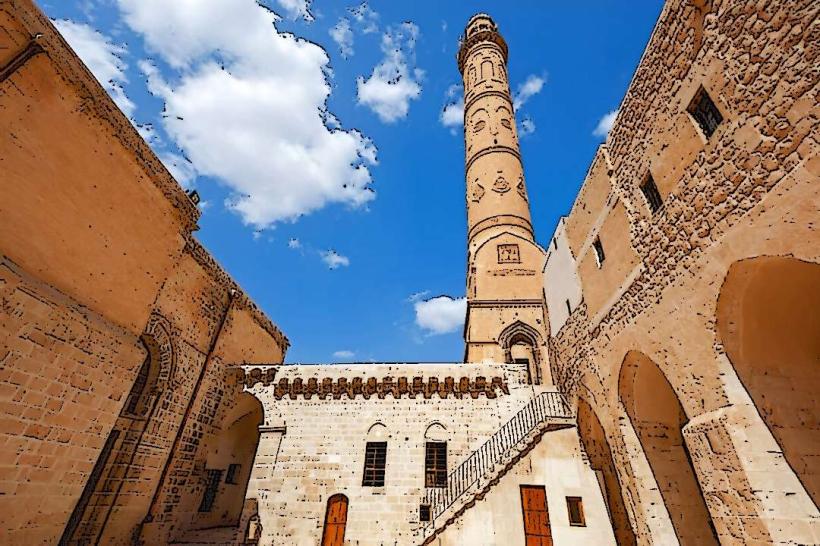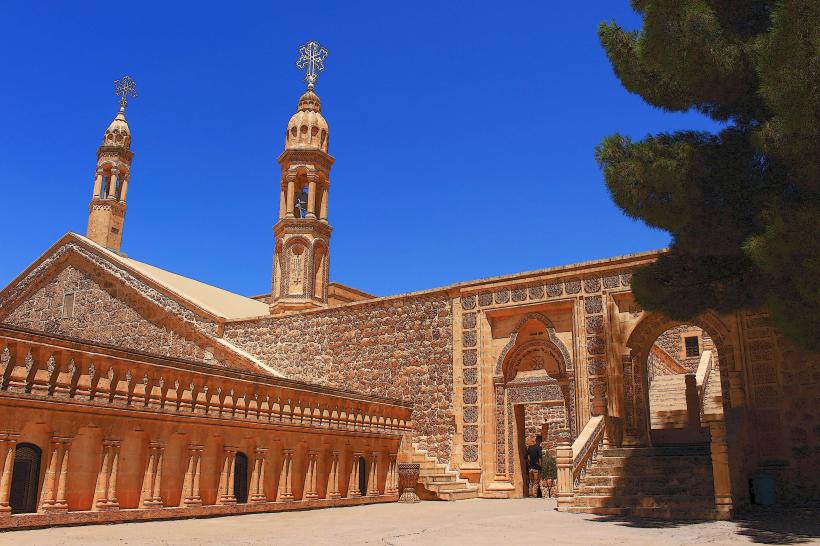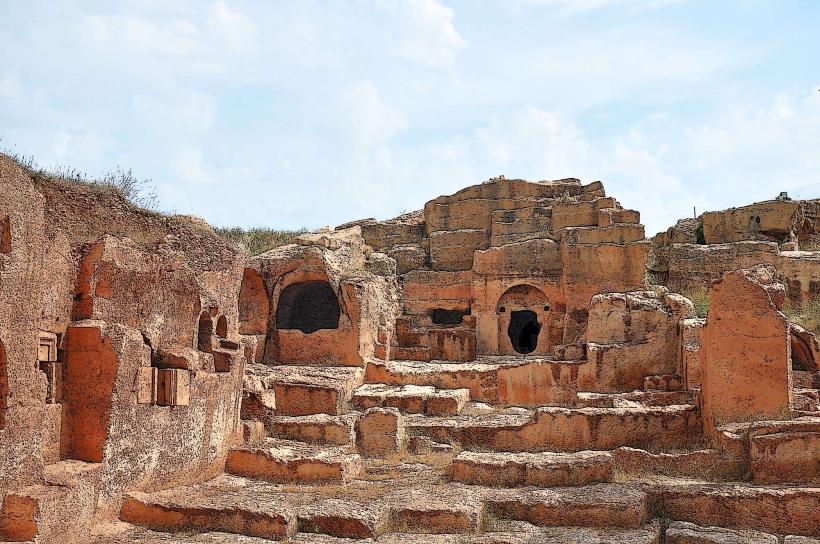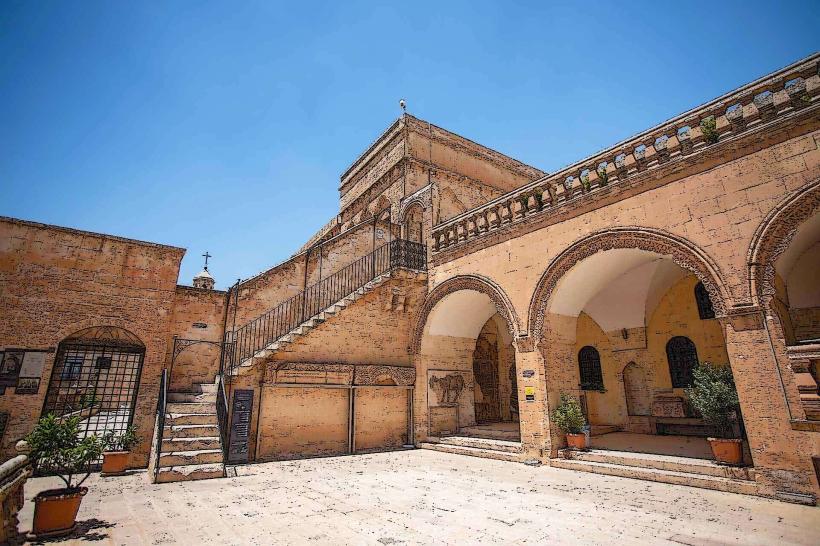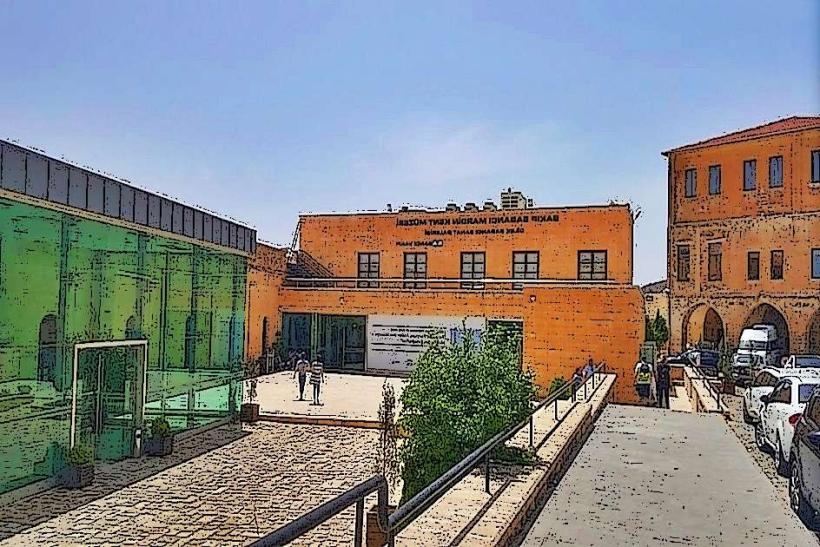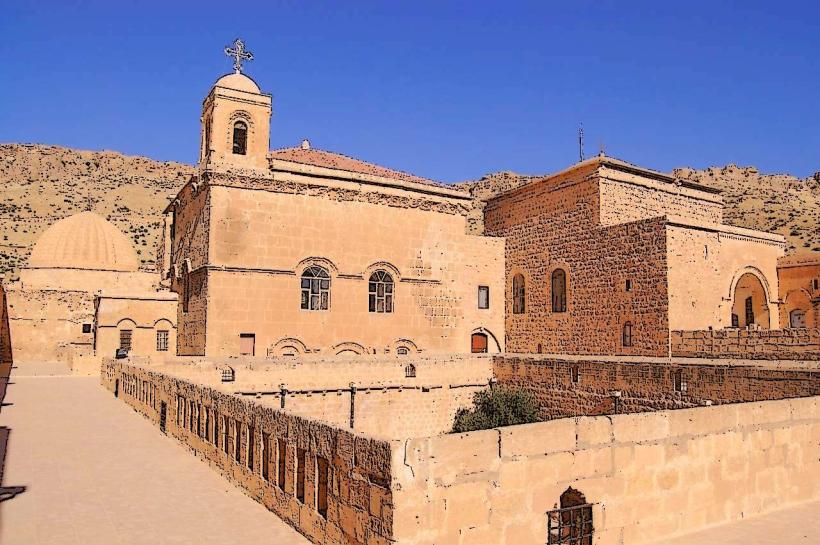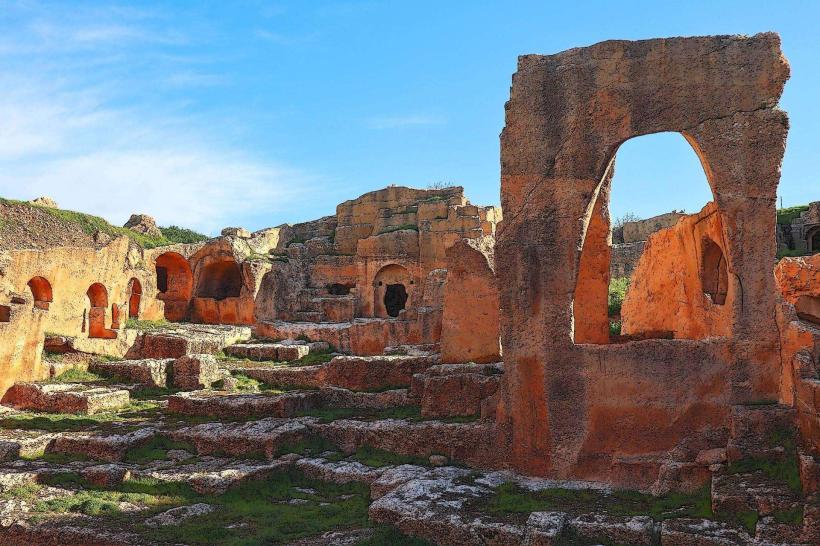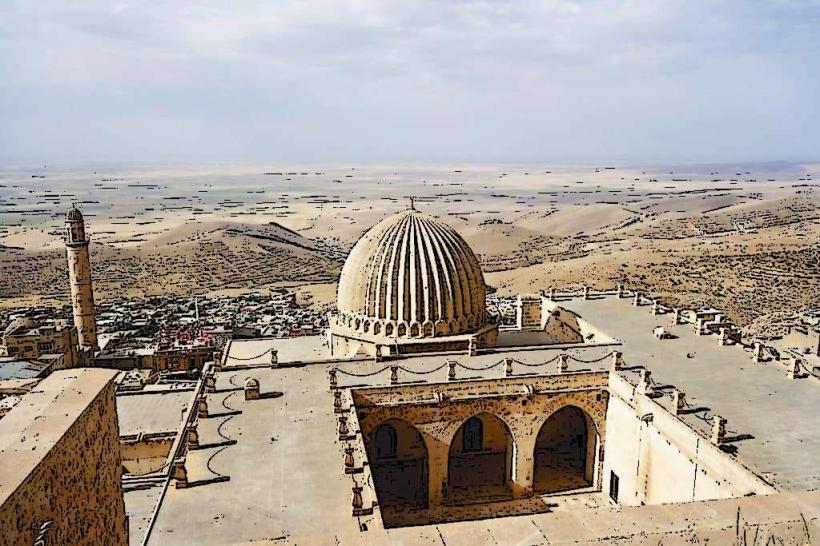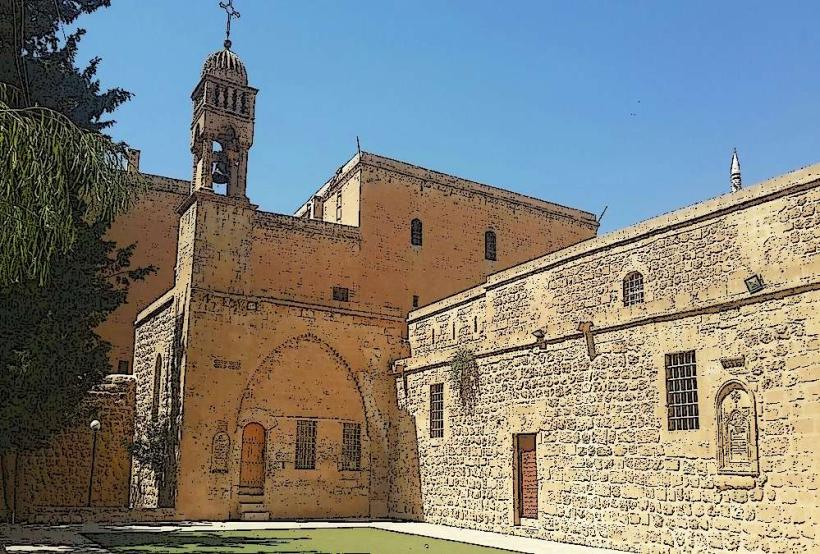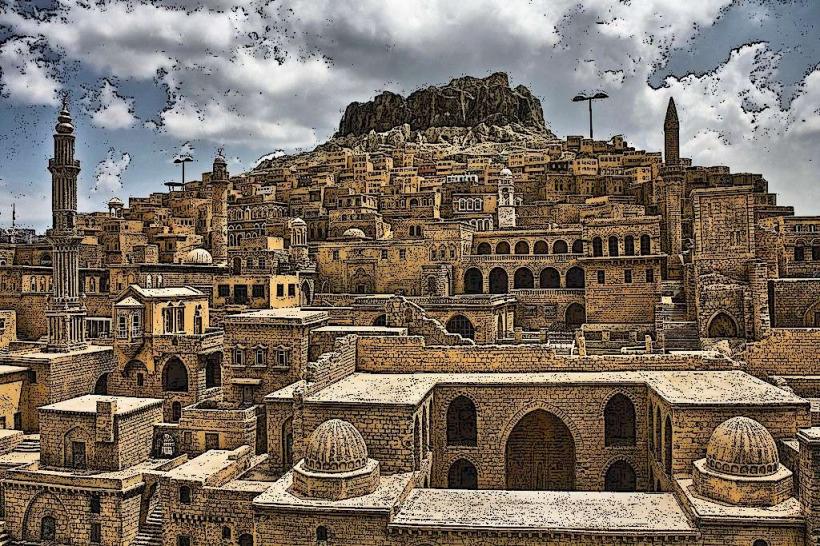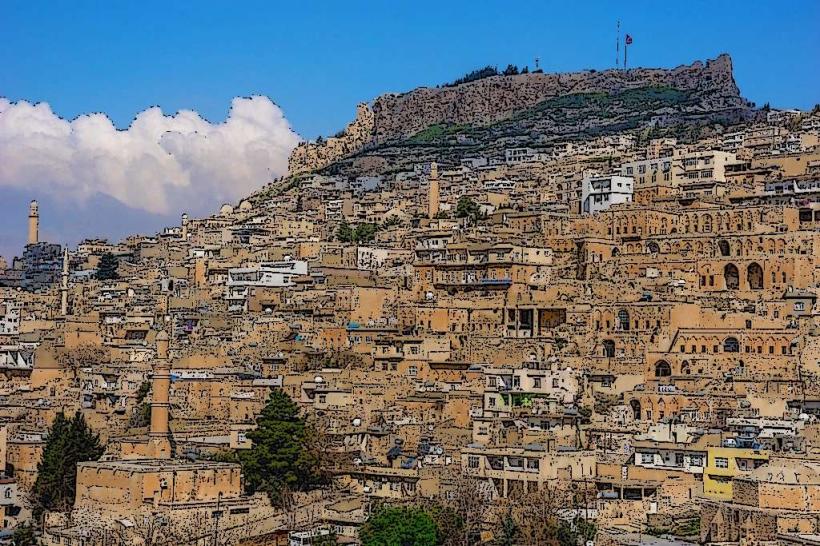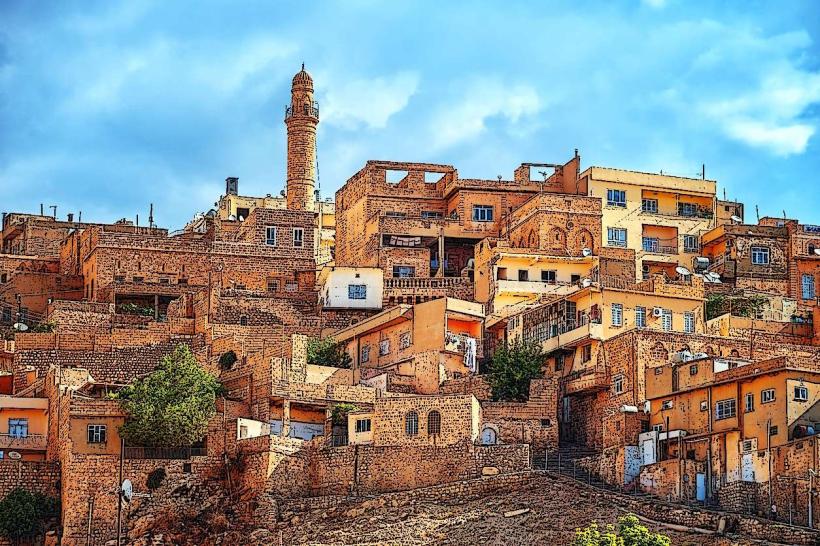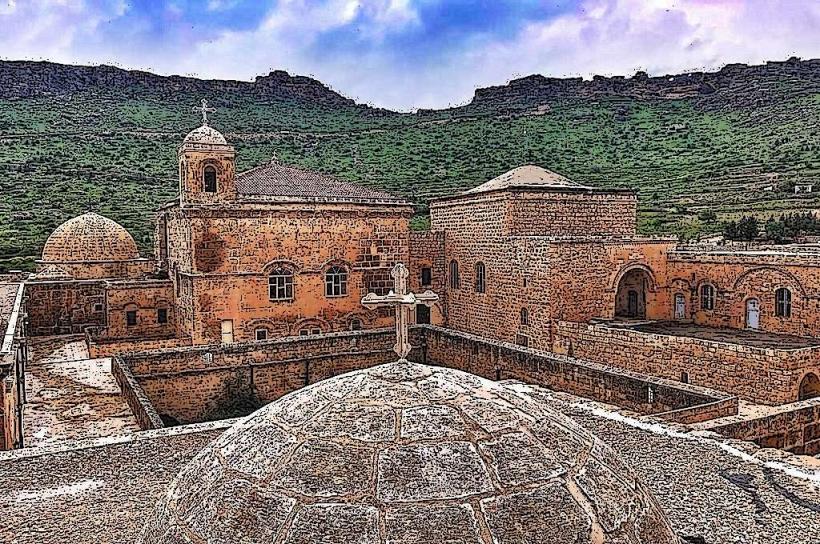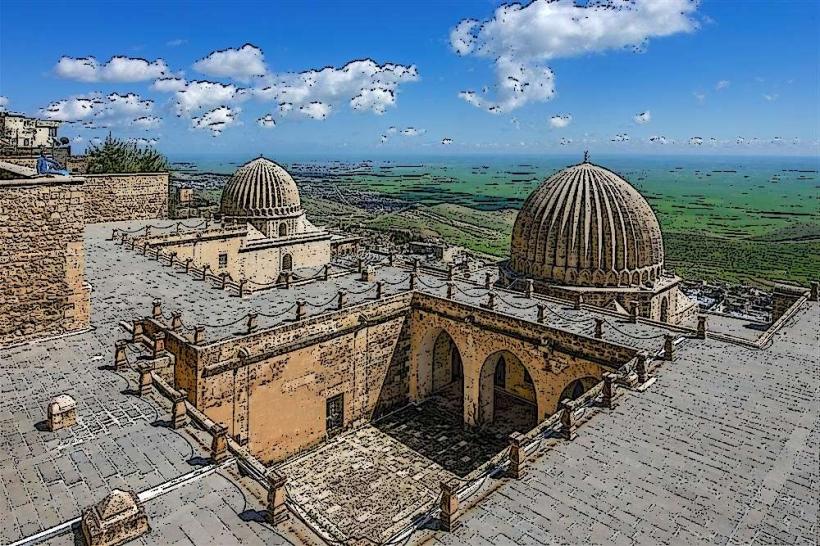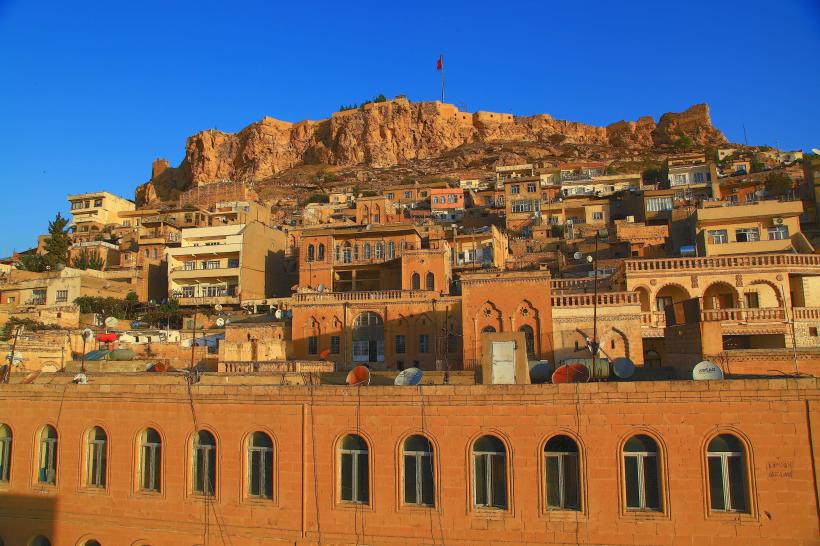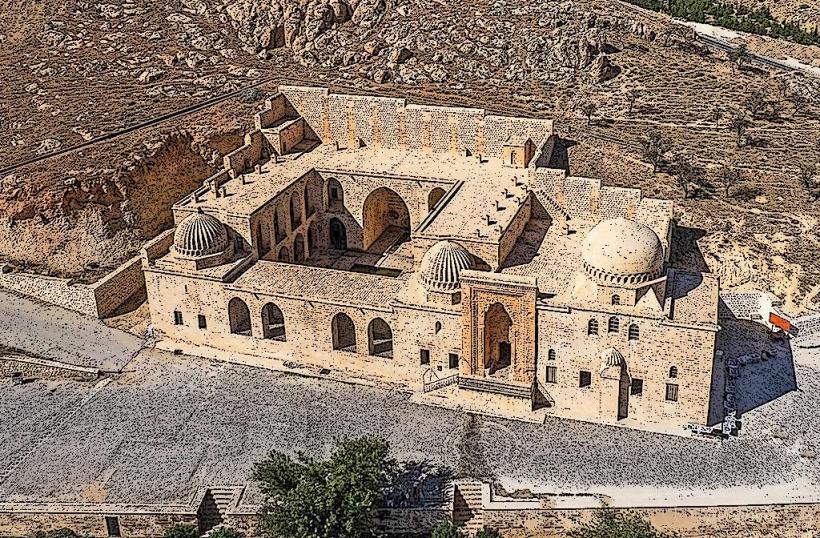Information
Landmark: Tulum ValleyCity: Mardin
Country: Turkey
Continent: Asia
Tulum Valley, Mardin, Turkey, Asia
The Tulum Valley is a geological depression located in the Mardin region of Turkey. It is characterized by its arid landscape and ancient rock formations.
Visual Characteristics
The valley floor is composed of sedimentary rock, primarily limestone, exhibiting shades of beige and grey. The terrain is uneven, with scattered scrub vegetation and occasional rock outcrops. The valley walls rise steeply, displaying layered strata indicative of their geological history. No significant water bodies are present within the valley itself.
Location & Access Logistics
The Tulum Valley is situated approximately 15 kilometers southwest of the city center of Mardin. Access is via the D380 highway, turning onto a local unpaved road marked by a small sign for "Tulum Kanyonu" (Tulum Canyon). This unpaved road extends for approximately 3 kilometers to a small, informal parking area. Public transport does not directly serve the valley; visitors typically require private vehicles. The nearest bus service operates between Mardin and nearby villages, requiring onward travel by taxi or private car.
Historical & Ecological Origin
The Tulum Valley is a product of long-term erosion, primarily by wind and infrequent flash floods, acting upon the Mesozoic limestone bedrock of the Mardin Plateau. This process has carved out the characteristic canyon-like features over millennia. Evidence of early human settlement, including rudimentary tools, has been found in the surrounding areas, suggesting intermittent use by nomadic groups in antiquity.
Key Highlights & Activities
Exploration of the valley floor on foot is the primary activity. Visitors can observe the geological stratification of the rock walls. Limited rock scrambling is possible in designated areas. No organized tours or facilities are available within the valley.
Infrastructure & Amenities
There are no restrooms, shade structures, or food vendors within the Tulum Valley. Cell phone signal is intermittent and generally unreliable. Visitors should carry sufficient water and provisions.
Best Time to Visit
The optimal time for visiting is during the spring (March to May) and autumn (September to November) months to avoid extreme temperatures. Mid-morning (9:00 AM - 11:00 AM) offers moderate sunlight for viewing the rock formations. Summer months (June-August) can experience temperatures exceeding 40°C.
Facts & Legends
Local folklore suggests that the valley was once a refuge for ancient traders traversing the Silk Road, with tales of hidden caches of goods. Geological surveys have not confirmed the existence of such caches, but the valley's remote nature supports its potential use as a temporary shelter.
Nearby Landmarks
- Mardin Castle (12km Northeast)
- Deyrulzafaran Monastery (10km North)
- Kasımiye Madrasah (13km Northeast)
- Old City of Mardin (15km Northeast)

